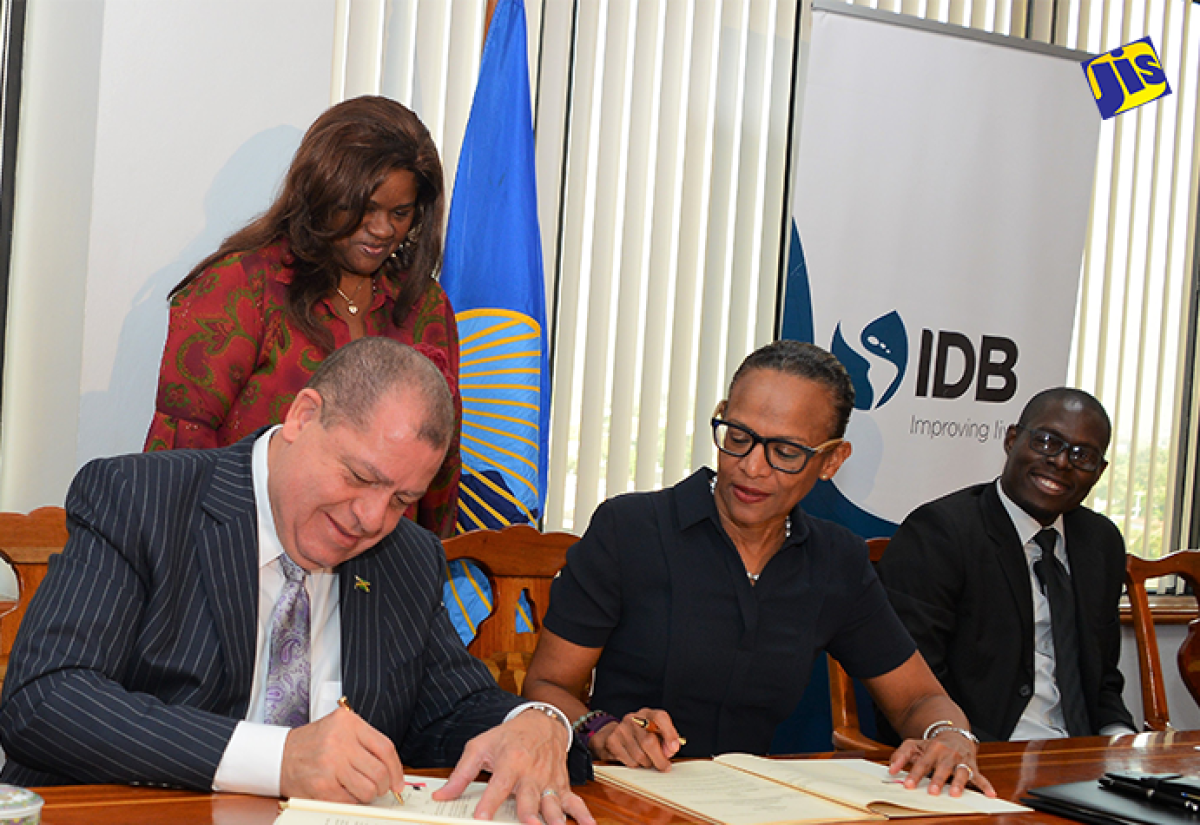Jamaica Receives 6.4 Billion Loan under Fiscal Structural Programme
By: , December 20, 2016The Key Point:
The Facts
- The Fiscal Structural Programme for Economic Growth entails three consecutive programmatic operations, with the policy conditions under the first two operations having been successfully met.
- Some of the achievements, so far, under the programme include the simplification of the tariff structure, reduction of tax distortions, the implementation of the fiscal responsibility framework, and the curtailment of expenditure.
The Full Story
Jamaica has received some US$50 million ($6.41 billion) in loan funding from the Inter-American Development Bank (IDB), under its Fiscal Structural Programme for Economic Growth (FISPEG) III.
The loan will boost tax revenues, enhance control over budgetary expenditure and reinforce customs administration effectiveness.
Speaking at the signing ceremony, held today (December 19), at the Ministry of Finance and the Public Service, Heroes Circle, Minister of Finance and the Public Service, Hon. Audley Shaw, said it is expected that through measures being implemented under the FISPEG series of programmes, the business climate will be improved, primarily as a result of simplifying the tax structure.
“Ultimately, the FISPEG III will assist the Government in strengthening tax policy and administration, ensuring stability of the National Insurance Scheme and also strengthening the fiscal responsibility framework even further,” Mr. Shaw said.
The Minister noted that measures under FISPEG III will strengthen the capacity of customs administration, thereby facilitating improved movement of goods and services within and outside CARICOM, while promoting better integration of Jamaica into the global economy.
“These actions will contribute to increased macroeconomic stability, a sustainable debt-reduction trajectory, enhanced investor confidence and an improved business climate that will attract new investments,” Mr. Shaw informed.
He argued that the positive impact of the actions will be evidenced by a reduction in poverty levels, and improved standard of living, which are integral to the establishment of a solid foundation for sustained economic growth and development.
Meanwhile, General Manager of the Caribbean Country Department with the IDB, Therese Turner-Jones, said the loan is a culmination of very serious work on revamping tax administration and tax policies in Jamaica.
She also noted that the IDB is happy to see where Jamaica is, in terms of its macroeconomic outlook.
“I think the 2.2 per cent positive growth in the third quarter this year is (a sign) of positive things to come in this economy. I would like to see that we don’t take our eyes off the fiscal consolidation path, because I think there is always room for improvement,” Mrs. Turner-Jones said.
The Fiscal Structural Programme for Economic Growth entails three consecutive programmatic operations, with the policy conditions under the first two operations having been successfully met.
The first operation (FISPEG I), was signed on February 6, 2014. It provided financing in the sum of US$80 million, while the second, FISPEG II, signed on August 5, 2015, provided US$130 million.
Some of the achievements, so far, under the programme include the simplification of the tariff structure, reduction of tax distortions, the implementation of the fiscal responsibility framework, and the curtailment of expenditure.


